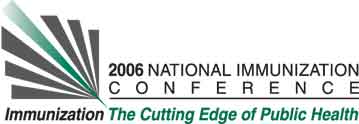Richard K. Zimmerman1, Robert M. Wolfe
2, Dwight E. Fox, Jake R. Fox
1, Mary Patricia Nowalk
1, Judith A. Troy
1, and Lisa K. Sharp
2. (1) Family Medicine & Clinical Epidemiology, University of Pittsburgh, 3518 Fifth Avenue, Pittsburgh, PA, USA, (2) Family Medicine, Northwestern University Medical, Morton 1-658, 303 E. Chicago Avenue, Chicago, IL, USA
Learning Objectives for this Presentation:
By the end of the presentation, the participant will be able to discuss common allegations on vaccine critical websites and common logic fallicies and heuristics.
Background:
The incidence of vaccine-preventable diseases is directly related to the number of unvaccinated children. Parents who refuse vaccination of their children frequently express concerns about vaccine safety. The Internet can influence perceptions about vaccines because it is the fastest growing source of consumer health information.
Objectives:
The purposes of this paper are to examine vaccine criticism on the Internet and to analyze the websites in order to identify common characteristics and ethical allegations.
Methods:
A structured Web search was conducted for the terms “vaccine,” “vaccination,” “vaccinate,” and “anti-vaccination” using a metasearch program that incorporated 8 search engines. This yielded 1138 Web pages representing 750 sites. Two researchers reviewed the sites for inclusion/exclusion criteria, resulting in 78 vaccine-critical sites, which were then abstracted.
Results:
The most common characteristic of vaccine-critical websites was the inclusion of statements linking vaccinations with specific adverse reactions. Other common attributes (≥ 70% of websites) were links to other vaccine-critical websites; charges that vaccines contain contaminants, mercury, or “hot lots” that cause adverse events; claims that vaccines provide only temporary protection and that the diseases prevented are mild; appeals for responsible parenting through resisting the establishment; allegations of conspiracies to hide the truth about vaccine safety; and charges that civil liberties are violated.
Conclusions:
Vaccine-critical websites frequently make serious allegations. With the burgeoning of the Internet as a health information source, an undiscerning or incompletely educated public may accept these claims and refuse vaccination of their children.
Web Page:
www.jmir.org/2005/2/e17/
See more of Posters
See more of The 40th National Immunization Conference (NIC)

